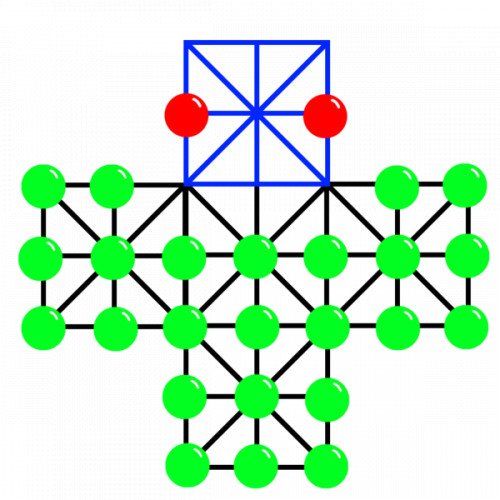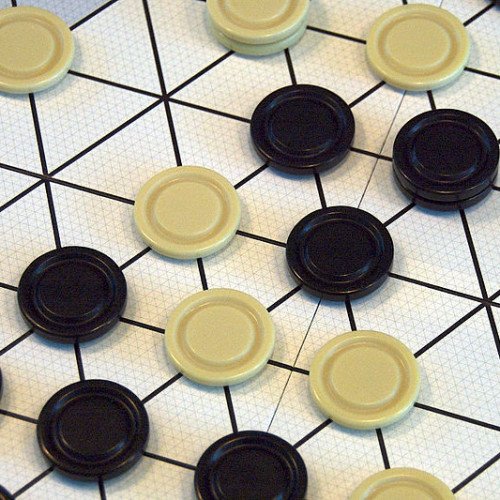ASALTO VS GIPF

ASALTO
Asalto, also known as the Assault Game, German Tactics or Officers and Sepoys, is a board game for two players in which one player, playing as the officers, attempts to defend a fortress from their opponent's invading rebels. The game is a variant on the Fox and Geese theme, and is commonly played in Germany, France, and England. Asalto is an asymmetric game in which the players take on two very different roles: the rebels and the officers. The rebels' objective is to capture the two officers, surround them so that they cannot move, or occupy all of the points within the "fortress". The officers' objective is to capture enough rebels that these tasks become impossible. Asalto is played on a grid of 33 intersection points in the shape of a cross, with a specially denoted arm known as the fortress at the top of the board. The total number of pieces in an Asalto game is 26, composed of 24 rebels and two officers. Before play begins, the rebels are arranged so that they sit on the 24 intersection points outside the fortress, while the officers may be arranged at the player's discretion inside the fortress. The game begins once the rebel player takes the first turn.
Statistics for this Xoptio

GIPF
GIPF is an abstract strategy board game by Kris Burm, the first of six games in his series of games called the GIPF Project. GIPF was recommended by Spiel des Jahres in 1998. Players take turns pushing tokens (one player taking black, the other white) from the edge of the tri-gridded, hexagonal board, with pieces already in play pushed in front of the new placements rather than allowing more than one piece on any space. The game is lost if a player has no more tokens to play, and since each starts with a set number of tokens, it is clearly necessary to recycle pieces already positioned to keep playing. This is achieved by contriving to line up four pieces of the same colour in a row on the board, at which point those tokens are returned to their owner, and any opposing tokens extending from the line of four are captured. Because a single player will often move several pieces and change numerous on-board relationships, it is remarkably difficult to predict the state of the board more than one turn ahead, despite GIPF being a game of perfect information. Play tends to be highly fluid and there is no real concept of long term territorial or spatial development. The game can be expanded with extra pieces (available separately) called Potentials, which allow different kinds of moves to be made. These are named for the other games in the GIPF Project, though the other games are not actually necessary in order to utilise the Potentials named after them.